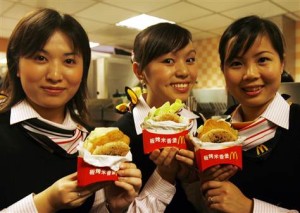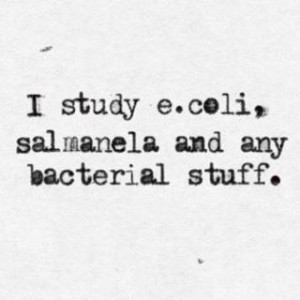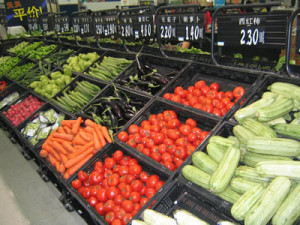Not surprisingly, the China meat scandal has widened.
 McDonald’s Corp feels “a bit deceived” by the audit it received for Shanghai Husi Food Co Ltd, a China supplier that was shut down this week after a TV report showed workers mishandling meat, Chief Executive Don Thompson said on Tuesday.
McDonald’s Corp feels “a bit deceived” by the audit it received for Shanghai Husi Food Co Ltd, a China supplier that was shut down this week after a TV report showed workers mishandling meat, Chief Executive Don Thompson said on Tuesday.
“We are no longer serving product from the primary facility there that has the challenges and the issues,” Thompson said on a conference call after McDonald’s reported lower-than-expected quarterly earnings.
But why would a huge brand rely an audit?
The Shanghai Food and Drug Administration on Sunday halted operations of Shanghai Husi following a Dragon TV report that showed workers picking up meat from a factory floor, as well as mixing fresh meat with meat beyond its expiration date.
The scandal also has ensnared other Shanghai Husi customers, including KFC parent Yum Brands Inc and Burger King Worldwide Inc.
Many U.S. restaurant operators and retailers rely on third-party auditors to check whether their suppliers comply with food safety rules and other regulations. It is not uncommon for suppliers at the center of food safety scandals to have received high marks on their audits.
We wrote, and repeated here, it’s time to change the discussion and the approach to safe food. Time to lose the religion: audits and inspections are never enough.
• Food safety audits and inspections are a key component of the nation’s food safety system and their use will expand in the future, for both domestic and imported foodstuffs, but recent failures can be emotionally, physically and financially devastating to the victims and the businesses involved;
• many outbreaks involve firms that have had their food production systems verified and received acceptable ratings from food safety auditors or government inspectors;
• while inspectors and auditors play an active role in overseeing compliance, the burden for food safety lies primarily with food producers;
• there are lots of limitations with audits and inspections, just like with restaurants inspections, but with an estimated 48 million sick each year in the U.S., the question should be, how best to improve food safety?
• audit reports are only useful if the purchaser or food producer reviews the results, understands the risks addressed by the standards and makes risk-reduction decisions based on the results;
• there appears to be a disconnect between what auditors provide (a snapshot) and what buyers believe they are doing (a full verification or certification of product and process);
• third-party audits are only one performance indicator and need to be supplemented with microbial testing, second-party audits of suppliers and the in-house capacity to meaningfully assess the results of audits and inspections;
• companies who blame the auditor or inspector for outbreaks of foodborne illness should also blame themselves;
• assessing food-handling practices of staff through internal observations, externally-led evaluations, and audit and inspection results can provide indicators of a food safety culture; and,
• the use of audits to help create, improve, and maintain a genuine food safety culture holds the most promise in preventing foodborne illness and safeguarding public health.
Audits and inspections are never enough: A critique to enhance food safety
30.aug.12
Food Control
D.A. Powell, S. Erdozain, C. Dodd, R. Costa, K. Morley, B.J. Chapman
Internal and external food safety audits are conducted to assess the safety and quality of food including on-farm production, manufacturing practices, sanitation, and hygiene. Some auditors are direct stakeholders that are employed by food establishments to conduct internal audits, while other auditors may represent the interests of a second-party purchaser or a third-party auditing agency. Some buyers conduct their own audits or additional testing, while some buyers trust the results of third-party audits or inspections. Third-party auditors, however, use various food safety audit standards and most do not have a vested interest in the products being sold. Audits are conducted under a proprietary standard, while food safety inspections are generally conducted within a legal framework. There have been many foodborne illness outbreaks linked to food processors that have passed third-party audits and inspections, raising questions about the utility of both. Supporters argue third-party audits are a way to ensure food safety in an era of dwindling economic resources. Critics contend that while external audits and inspections can be a valuable tool to help ensure safe food, such activities represent only a snapshot in time. This paper identifies limitations of food safety inspections and audits and provides recommendations for strengthening the system, based on developing a strong food safety culture, including risk-based verification steps, throughout the food safety system.
 The company plans to increase audits and video monitoring at its suppliers and send more employees to meat production facilities to ensure its food is prepared safely. It also named a new food safety officer and created a hotline where employees can report poor food safety practices, McDonald’s said in a statement on Tuesday.
The company plans to increase audits and video monitoring at its suppliers and send more employees to meat production facilities to ensure its food is prepared safely. It also named a new food safety officer and created a hotline where employees can report poor food safety practices, McDonald’s said in a statement on Tuesday.









